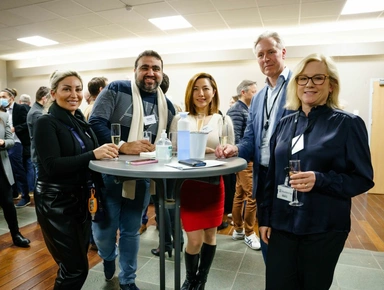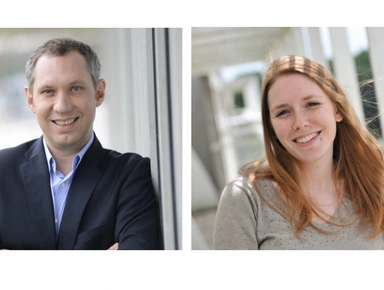A consultant is a professional who provides advice for companies in all areas of specialization. In order to fulfill his role and missions, consultants must build a good and truthful relationship with their clients. Here lies the tricky position of a consultant: they can sometimes adopt the clients’ perspective in order to please them and build a good relationship. The ethical issue is that they can therefore forget their initial mission which is to analyze the situation and advise the fittest solutions.
On the other hand, the consultant, as an employee of a consultancy and working for a client, can suffer from their manager's pressure to sell the most expensive solutions even though the client doesn’t necessarily need them.
Between the manager’s pressure and the client’s expectations, where is the consultant duty of objectivity? What are the tools a consultant can use in order to stay objective and give the best advice for the clients without abusing their trust?
In order to scope this phenomenon and find a solution, we interviewed a 10-year experienced consultant that previously worked for consultancies and is now freelancer: Omar Berji. He specializes in digital strategy and transformation. This area is especially interesting in our research since it is a constantly moving sector where solutions to issues are various.
Client's perspective can influence the consultant's work
According to Omar, it is very clear. Not deploying all the solutions to the client is an unethical behavior. “{...} it is equivalent to not doing the work we are paid for in an objective way, and not bringing any added value. The myth that says that we have to follow all the client’s requests to keep a good client relationship is completely false and inaccurate. All the senior consultants will tell you that what matters the most is to build a long-term trust-relationship and to always offer to the client what will be beneficial to their company and to them.”
When we asked Omar if he already found himself in a situation where he had to take his client’s perspective to keep a good relationship, he explained to us that he never experienced this but that it was very common in consulting. Also, it is very prevalent for clients to already have chosen a solution before asking the advice of a consultancy. As Omar told us: “We always hear of clients that ask for advice but already have a solution in mind. They ask for external advice just to follow the protocol. We speak a lot about “ghost missions”. However, the solutions chosen ahead are often not the most suitable because the client may be too focused on some details and forget the whole picture. In addition, the client might forget some key elements in his analysis because he may be unaware of some new innovative solutions on the market, or he may lack experience in managing certain type of projects. For all those reasons, it is the duty of the consultants to keep a straight head and convince the client of the better solution. “In the consulting world, the law is to never stand up to the client because he is king. He pays for the advice and we need to have a good relationship with him. We must understand the situation. Why the solution he thinks of is the best according to him? {...} In fact, we should take into account the client's opinions and reasons and then prove to him that the other solution is the best fit with facts, numbers, and benchmark studies. We have to make him understand that it is in our both advantage to know all the solutions available and the best fits according to facts. After that, the client will be the one taking the decision.”
How to prevent such a phenomenon
Now that we know how to convince the client to stay open to the consultant's advice, the difficulty for a consultants is to not adopt, even unconsciously, their client's point of view without analyzing the situation. According to Omar, the solution is clear: stick to the consultant methodology. “Even Though the client tries to influence us in a certain way, we have to stick to the methodology, send the deliverables in order to offer the best and fittest solutions. One must not forget, the consultant's job is to advise and in no way, force a decision.”
Even though it can seem that a client is open to hear everything the consultant has to say, his need of control can sometimes shape the mission in his way of thinking. At this point, the work of the consultant is useless because they will not be able to think about the situation objectively and from an external point of view. This phenomenon is intensified when the missions are long and the consultant works full time at the client. For Omar, to avoid such a situation there is one solution: make everything clear from the beginning. “You should always be diplomatic, explain well to the client how the mission will take place and at what phase we will need him, i.e at the beginning of the mission, deploy well the methodology used, the planning to follow, at what phase the consulting firm intervenes and at what phase the client will intervene too. That way it will be clear from the beginning. In the kick off, we explain everything, everyone agrees and it will serve as a return point in case of a conflict.”
Managers also put pressure on their teams to sell more expertise to the clients
It is no secret that consulting firms are very competitive with each other. And keeping a client loyal requires making many efforts that can be sometimes unethical. Business and profitability are all what managers care about, and this often means charging as many days as possible and selling more and more services to the clients. According to Omar, “This results in pressure from upper management on consultants to increase the number of days charged on the commercial propositions. The managers usually know the clients' budgets and know how far they can go so they won’t mind adding services to charge that the client doesn’t necessarily need.”
This puts the consultants in very tricky situations, questioning their ethics and the value of their work. When asking Omar about what consultants do to stay honest in front of their clients when facing this kind of pressures, he said: “What we usually do to stay honest is to always bring the highest added value to the client and even though we end up selling him more services than what he needs. We try to accompany him on subjects that he wasn’t expecting our help on and try to always bring more value than what was initially asked for.”
We can clearly understand that the consultant’s position is very complex and rely on balance. Over the past few years, the duty of objectivity became the main asset of the consultants to distinguish themselves among the raising number of consultants in the world. Consultants must always be diplomatic when interacting with clients to build a strong relationship based on trust. Regarding the consultants’ relationship with their managers, we can sense a real evolution with the rise of new consultancy models based on transparency, independence and goodwill.
Article by Lina Berji – Avigael Haziza
References :
- https://managementhelp.org/misc/ethical- consulting.pdf
- https://carstenknoch.com/2011/11/building -your-consulting-library-the-ethics-and- practice-of-knowledge-reuse/
- https://legalvision.co.nz/intellectual- property/consultant-own-intellectual- property-over-work/
- https://hbr.org/1982/09/consulting-is-more- than-giving-advice
- https://infoworks.com/client-consultant- relationships-and-the-need-for- control/#:~:text=The%20client%2Dconsult ant%20relationship%20can,for%20some %20kind%20of%20change









